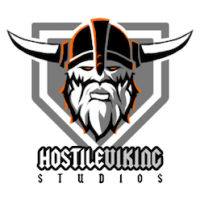Greetings all,
I've often wondered this very subject and thought I'd get some input, hopefully from someone familiar with game development and game publishing.
Lets take an ideal situation where I have absolutely no trouble in raising stable operations capital.
Just a little background. My strengths as it stands is not directly related to the low level coding and development side of the development process, but with coming up with high concept design documentations, assisting in technical documents, and aiding in sound development via both recording and directly mapping in engine using game sound tools, along with other business related necessities (company filing, head hunting, etc.)....in other words, the clean up work :/.
Weakest strength by far is "coding". I certainly lack the skills to develop a full game on my own and while this could be learned, time and money is better spent in finding additional help (or...paying to learning to code, model, animated, blah blah blah).
Now I have options:
A) Find people interested in the work and create a small team
B) Hire an existing team with a credible name
C) Suffer hell and learn and do everything myself -_-
If I take A, I'd essentially be acting as Developer and Publisher (since we're considering an ideal money situation...but yes I realize that I could just be the developer and hunt for a publisher). We'd retain maximum earnings, however we might run into some trouble if we don't have a strong legal infrastructure to back us up. However if I'm considering B, I'd essentially be just the Publisher; we'd front money to teams and/or other projects of interest to put under us...similar to a music label and retain publishing rights to the work.
Thing is, with the move of more and more teams getting away from major publishers in favor of self publishing and smaller teams, is there a future in games as a new publisher who ONLY does publishing and not development? I much like the idea of hiring a team and working downward on a concept I, the publishing company have created, but what are the drawbacks?
What are some of the difficulties facing a games publisher (besides money)? Recommended formal experience going in? What about sales earnings between both the dev team and the publisher?
Tried my best to write this. I hope it makes enough sense. Thanks all :)









